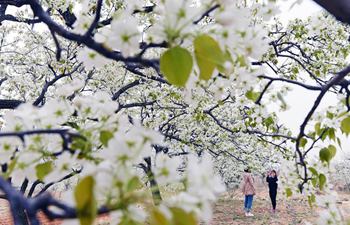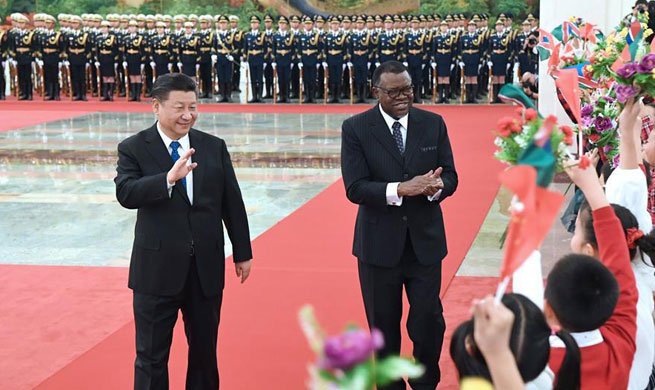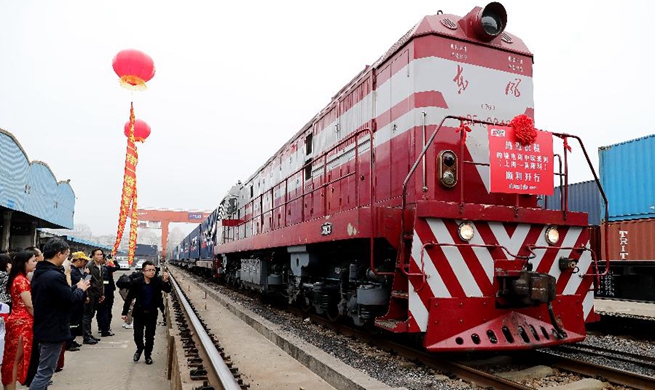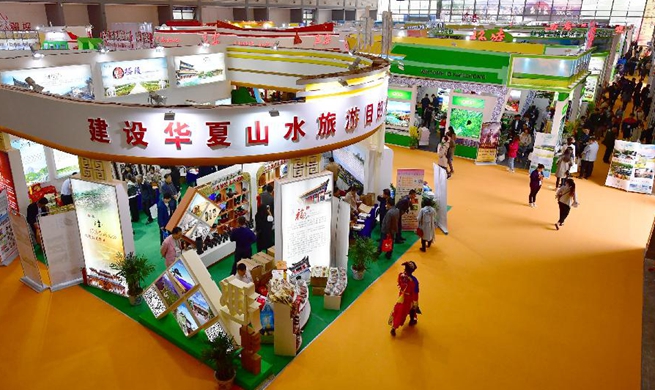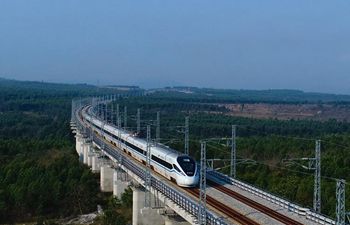BEIJING, March 30 (Xinhua) -- The U.S. decision to impose high tariffs on Chinese imports to reduce its trade deficit with China will backfire, according to former World Bank chief economist Justin Yifu Lin.
Lin drew the conclusion in an online article released by Project Syndicate on Wednesday, where he reviews trade relations between the world's top two economies as well as the history of U.S. trade deficit growth, particularly since the mid-1980s.
On March 22, U.S. President Donald Trump signed a memorandum that would impose high tariffs on up to 600 billion U.S. dollars of Chinese products. The move has led to widespread comments and a strong opposition from China.
The U.S. trade deficit growth since mid-1980s, Lin said, mainly "reflects the monetary expansion by the Federal Reserve, which has inflated real estate and stock prices," leading to increased consumption and declined savings at home.
He also blamed it on the dramatic increase in the U.S. fiscal deficit due to the cost of U.S. military intervention in the Middle East and elsewhere.
"The increase in China's trade surplus with the U.S. since 1985 has been driven primarily by the evolution of the East Asian economy," Lin said, noting that East Asia is the major source of imported labor-intensive consumer goods for the United States.
Lin cited the fact that China's share in the U.S. total trade deficit rose from 0.3 percent in 1985 to 44 percent in 2016, or 347 billion dollars, while East Asia's contribution has dropped to about 50 percent from more than 100 percent in the early 1990s.
"East Asia, including China, is not the main cause of the rapid expansion of the U.S. trade deficit," he said.
Besides, Lin also pointed out that China's trade surplus with the U.S. has been "systematically overstated" because the capital-intensive components of its manufacturing products are primarily imported.
According to him, U.S. consumers will bear the costs of the Trump administration's tariffs on Chinese imports, having to pay more for the same products from other countries. "Meanwhile, higher prices of those countries' products will lead to an increase in the U.S. trade deficits with them," he said.
Lin called the U.S. move to impose high tariffs against China "politically motivated", which will "fly in the face of reciprocity, contradict the win-win principle of trade, and jeopardize the interests of U.S. voters."
Finally, while the United States imports "tens of thousands of Chinese products", China imports a narrow range of products from the United States. If China imposes higher tariffs on U.S. products, it "would thus have a bigger impact on U.S. producers than vice versa," he said.






